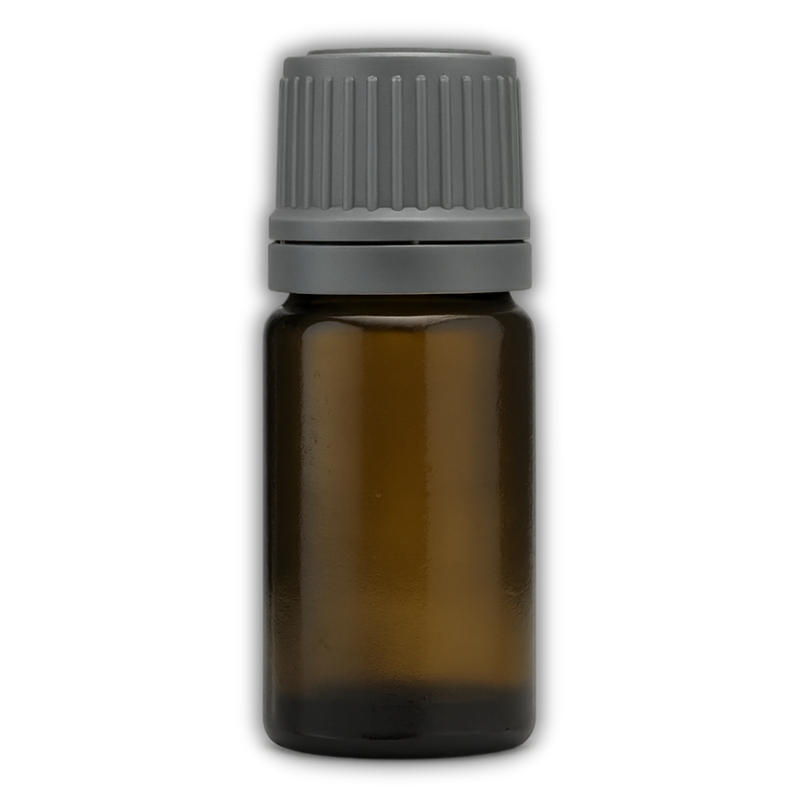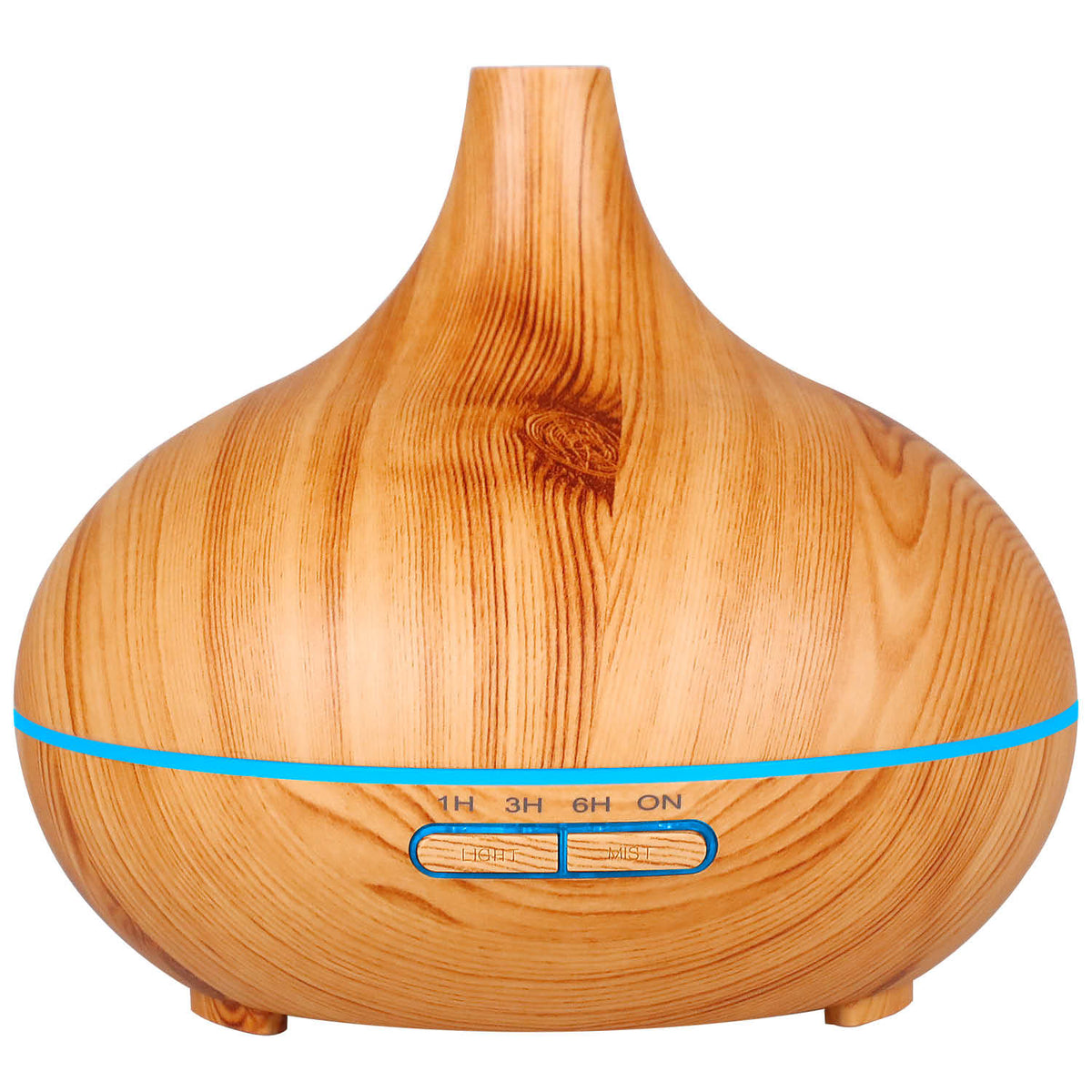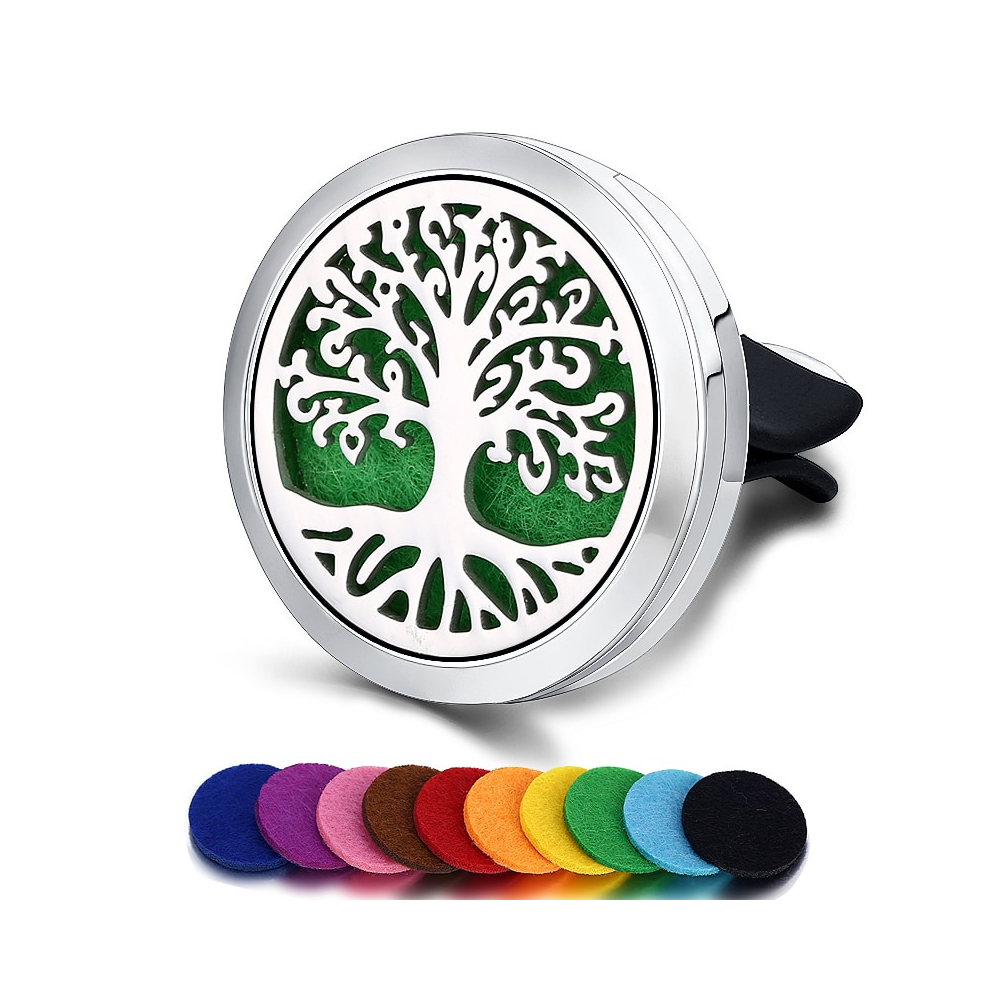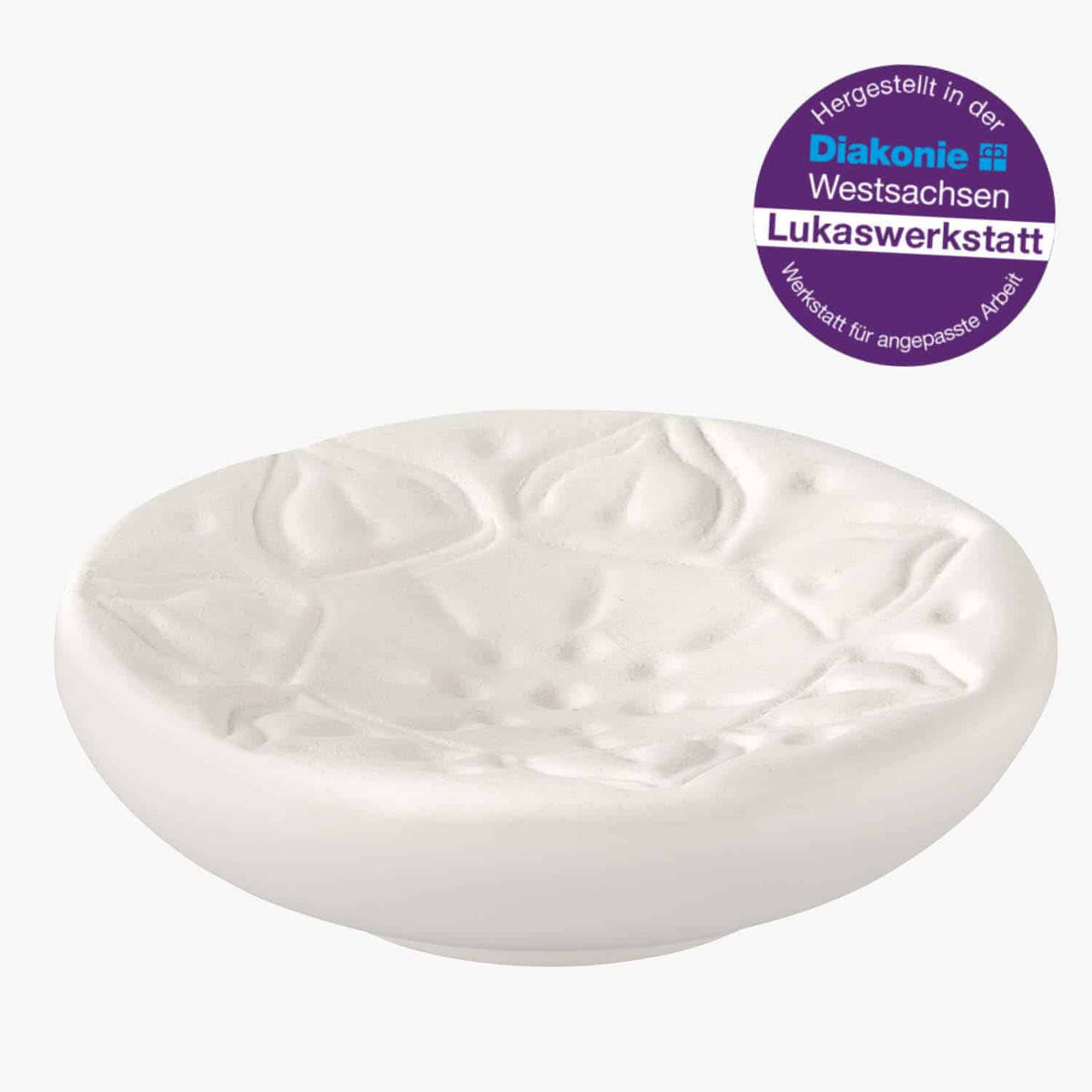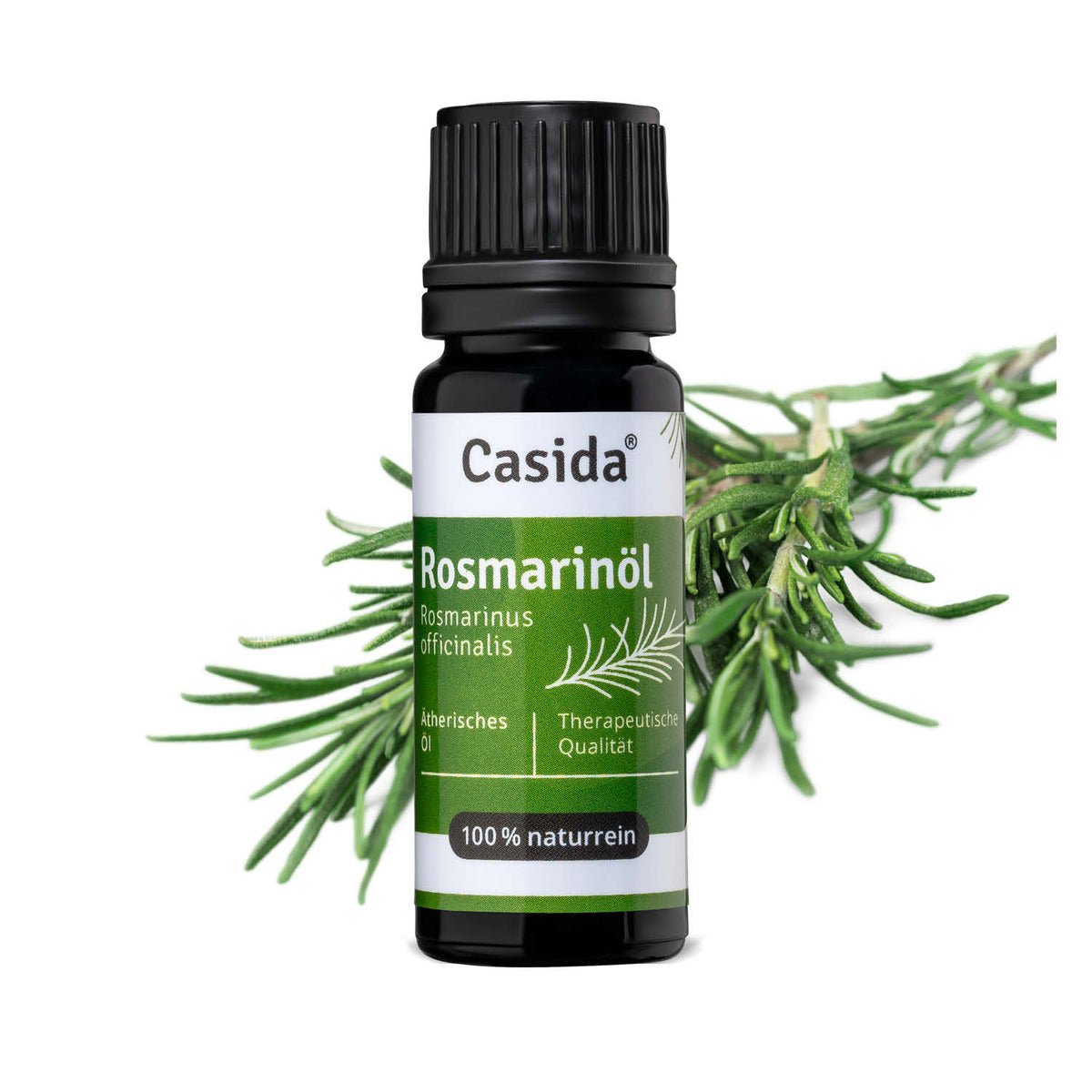Intense scents from very different fragrances are suitable for olfactory training. Therefore, the Casida Smell Training Set contains the following pure natural essential oils:
-
Fresh/clarifying scent profile: Eucalyptus 10 ml
-
Sweet/floral scent profile: Rose Geranium 5 ml
-
Fruity/sour scent profile: Lemon 10 ml
-
Spicy/earthy scent profile: Clove 5 ml
TIP: Regularly smelling intense, natural scents is also beneficial for those with impaired sense of taste. The sense of smell and taste are closely linked, and information from the nasal and oral mucosa is processed together in the brain.
Why olfactory training can help
Research into smell loss, especially in connection with COVID-19, is in full swing. Currently, researchers assume that damaged olfactory cells are the cause of the smell loss. The olfactory cells in the nasal cavity regenerate every four to six weeks and can be trained through targeted stimulation*. It is assumed that specific and regular stimuli build neural connections in the brain, allowing the sense of smell to be "relearned."
Like any physical and mental training, smell training requires patience. Over several months, you sniff different scents for approximately 30 seconds each morning and evening. Only 100% pure essential oils, such as those from Casida, which are free of synthetic fragrances, are suitable for this purpose.
*Source: TU Dresden news "Olfactory training after Corona is useful" from January 19, 2021, available online on the TU Dresden news portal.
How does olfactory training work?
Under "Application" you will learn how the training is carried out. The Casida Olfactory Training Set includes easy-to-understand step-by-step instructions and a training plan. Alternatively, you can download the instructions and training plan for free here:
Note for asthmatics
If you suffer from asthma, use essential oils very carefully. Pure essential oils can trigger an asthma attack. If necessary, dilute the oils with an odorless, fragrance-neutral carrier essential oil or use fruits or flowers directly to train your sense of smell.
General note
Smell training carries little risk. However, symptoms should be assessed by a specialist. Specialized olfactory clinics or olfactory consultations, such as those offered at various university hospitals, are recommended.
This product is currently available exclusively here and in some mail-order pharmacies. It is also available individually at your local pharmacy.
Using high-quality, certified ingredients and selected suppliers. Pharmacist expertise ensures the optimal effect of herbal raw materials. We ensure that every product uses natural and sustainable ingredients.































